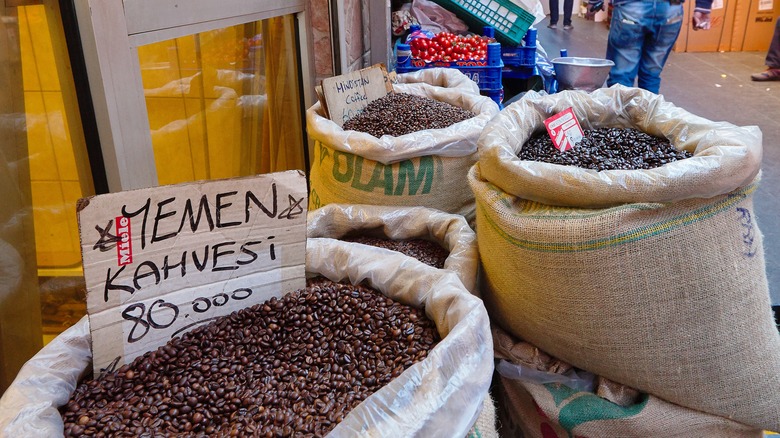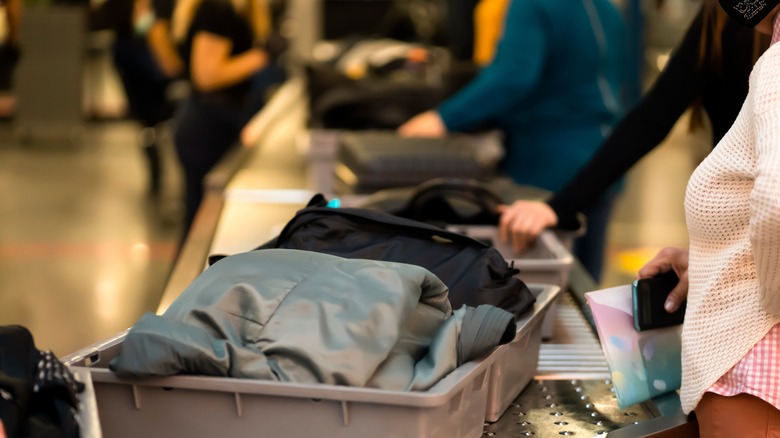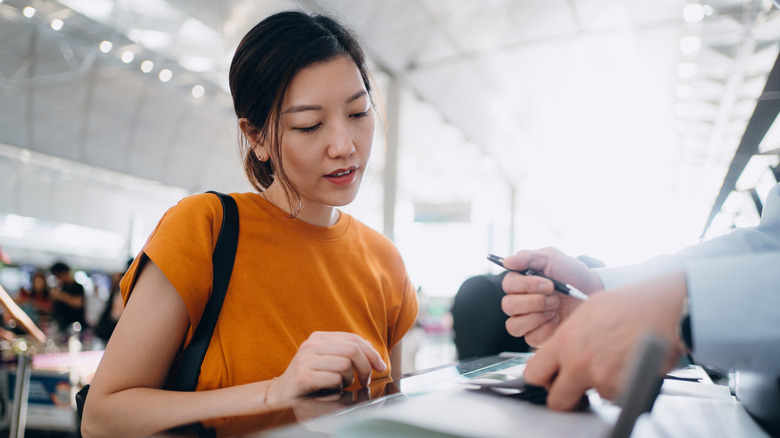Why Bringing Coffee Home As A Souvenir Might Cause Hang Ups With TSA
If you're lucky, your travels may take you to a destination celebrated for its coffee. And, understandably, you'll probably want to take some of that roasted goodness home to enjoy long after the trip is over. From the Kona region of Hawaii to Vietnam, coffee is one of the best local souvenirs to stock up on. Just be aware when heading to the airport that having coffee in your luggage could mean spending more time at the security checkpoint.
Coffee, both in ground and whole-bean form, isn't subject to TSA's liquid rules, and it's not considered a banned substance the way some medications are. So why would it cause hang ups in airport security? It turns out that drug smugglers are known to use coffee to conceal illegal goods packed in their luggage. Thanks to coffee's potent smell, it's thought to fool drug-sniffing dogs and security officers, which is why a few bags of coffee in your carry-on could raise suspicions.
You may also be flagged by TSA for carrying coffee grounds for another reason. In general, powders can be mistaken for explosive substances, which is why you should be cautious taking powdered medicine and other finely ground materials through TSA. Ground coffee is no exception and might be scrutinized by a security officer.
What happens if you pack coffee in your luggage?
Coffee beans and grounds are allowed through TSA in both carry-on and checked baggage. However, the coffee packages may be inspected and searched before getting TSA's stamp of approval. To speed up the process, keep coffee separate from your other items and have it readily available as you go through the security checkpoint. If your coffee is ground into a powder, consider limiting the amount to 12 ounces or 350 milliliters. Coffee grounds in carry-on luggage exceeding this amount may require additional screening and could be confiscated if not cleared by an officer.
During additional airport screenings, TSA staff will inspect the coffee to confirm it doesn't contain restricted substances. To do this, they may need to open the coffee, even if it's in its original sealed packaging. The security agents will often do a swab test to detect explosives, and, as long as your coffee tests negative, you'll be free to go to your gate after. However, to help rule out any other potential threats, TSA may also perform a pat-down or more thorough search of your belongings.
Don't forget to declare your coffee at customs
Another way your coffee could get you in trouble at the airport is if you fail to declare it at customs. There are certain foods you should never try to bring to the U.S. after your international travels, and while coffee isn't off-limits, it still needs to be declared. The same goes for any other agricultural goods, including tea, spices, and fresh foods. Note that there are some restrictions depending on the type of coffee product. Roasted coffee is allowed in unlimited quantities in any U.S. port, but unroasted coffee beans and coffee seeds are forbidden when entering or transiting through Hawaii or Puerto Rico. Coffee berries are prohibited in all U.S. ports in any quantity.
If you fail to declare your coffee at airport customs, it could be confiscated if it's detected in your luggage. You may also be slapped with a fine for not informing customs of your souvenir. To make matters worse, you could be subject to additional screenings during future trips, and any special benefits — such as Global Entry or TSA PreCheck — might be revoked. To be safe, make sure to pass through customs before leaving the baggage claim area and inform the officers that you're arriving with coffee in your possession.


